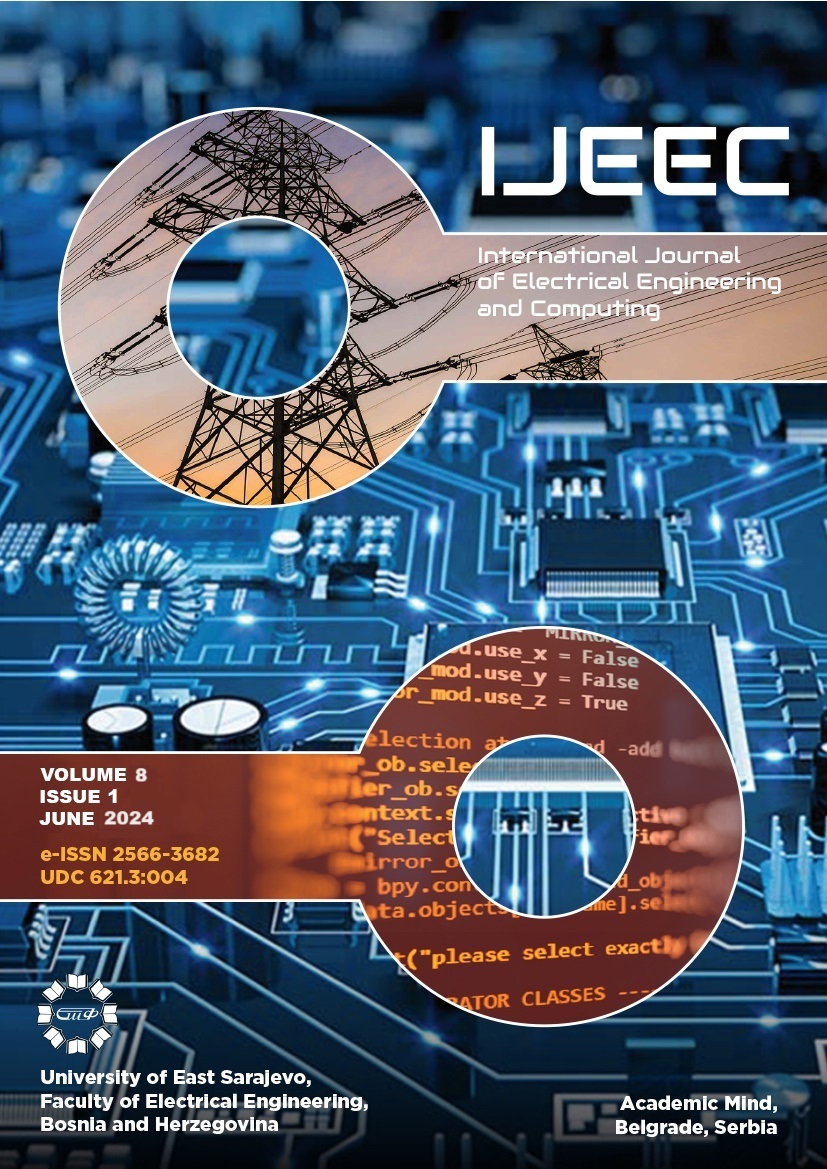A new electrode structure of IrOx/Bi-doped SrRuO3 for highly reliable La-doped Pb (Zr, Ti)O3-based ferroelectric memories
DOI:
https://doi.org/10.7251/IJEEC2401001WAbstract
We successfully developed a lanthanum (La)-doped Pb (Zr,Ti)O3 (PLZT) based ferroelectric capacitor (FC) using a new electrode material of bismuth (Bi) doped SrRuO3 (B-SRO) aiming at reduction of energy consumption of ferroelectric random access memory (FeRAM) by suppressing the leakage current of its FC. Our employed B-SRO layer is effective for suppressing the leakage current due to reducing atomic interdiffusions of Iridium and lead between IrOx top electrode (TE) and PLZT. Space charge limited conduction (SCLC) is dominant in the leakage current of the FC with B-SRO, while defect assisted conduction possibly includes in the leakage current of FC without B-SRO in addition with the SCLC. Switchable polarization, depending on the B-SRO thickness, has largest value for 1.0-1.5 nm thick B-SRO. Excellent imprint and switching (fatigue) endurances is proven on the FC with 1 nm thick B-SRO.

